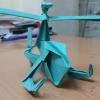Search Results
Showing results 1 to 17 of 17
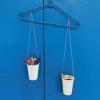
Balancing Act
Source Institutions
In this activity, learners will build thier own balance scale. Learners will explore weight and comparison through this activity.
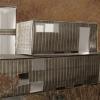
Make a Model of a Home Made From Shipping Containers
Source Institutions
In this activity, learners watch a video to learn about a couple who built a home out of shipping containers in Brooklyn, New York.
Sea State: Forecast Conditions at Sea
Source Institutions
In this oceanography and data collection activity, learners cast real time sea state conditions using buoys from NOAA's National Data Buoy Center.

What is a Nanometer?
Source Institutions
This lesson focuses on how to measure at the nanoscale and provides learners with an understanding how small a nanometer really is.

Perspectives: Powers of 10
Source Institutions
In this activity, learners complete a series of drawing activities to explore scale and powers of 10. Learners first trace each other on 1-meter-square pieces of paper.
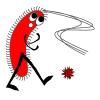
Comparing Sizes of Microorganisms
Source Institutions
In this activity related to microbes, learners create scale models of microorganisms and compare relative sizes of common bacteria, viruses, fungi and protozoa using metric measures: meters, centimete
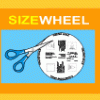
Size Wheel
Source Institutions
In this fun sticker activity, learners will create a size wheel with images of objects of different size, from macroscopic scale (like an ant) to nanoscale (like DNA).

Manufacturing Technologies: Making a Picture Frame
Source Institutions
Learners examine the manufacturing process while they make picture frames from cereal boxes.

Measuring Wind Speed
Source Institutions
In this indoor and/or outdoor activity, learners make an anemometer (an instrument to measure wind speed) out of a protractor, a ping pong ball and a length of thread or fishing line.

Dripping Wet or Dry as a Bone?
Learners investigate the concept of humidity by using a dry and wet sponge as a model. They determine a model for 100% humidity, a sponge saturated with water.
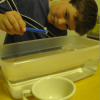
Shrinking Cups
Source Institutions
This is a quick activity (on page 2 of the PDF under Gecko Feet Activity) about the forces of gravity and surface tension and how their behavior is influenced by size.

Hot Stuff!: Investigation #4
Learners test two jars containing soil, one covered and one open, for changes in temperature. After placing the jars in the Sun, learners discover that the covered jar cools down more slowly.

Hot Stuff!: Investigation #2
Learners test two jars containing hot water, one covered with plastic and one open, for changes in temperature.

Hot Stuff!: Investigation #3
Learners test two jars of ice water, one covered and one open, for changes in temperature. After placing the jars in the sun, learners discover that the covered jar cools down more slowly.

Hot Stuff!: Investigation #1
Learners test two jars, one containing plain air and one containing carbon dioxide gas, to see their reactions to temperature changes.

Stabilization Wedges Game
Source Institutions
This game introduces learners to the scale of the greenhouse gas problem, plus technologies that already exist to dramatically reduce our carbon emissions and prevent climate change.

